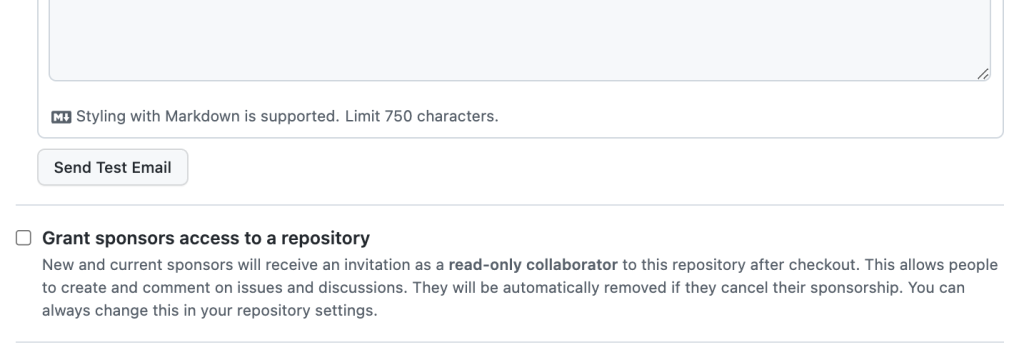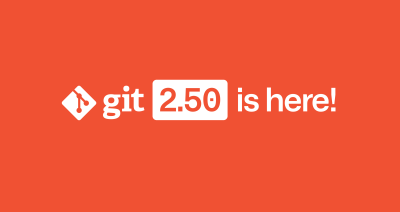New sponsors-only repositories, custom amounts, and more
Along with the release of sponsors-only repositories, here’s a look at what’s new and what’s next for Sponsors.

Since the launch of GitHub Sponsors, we’ve dramatically expanded the scope of what’s possible. We have enabled users to support other users, added the ability for organizations to create and receive sponsorship, and expanded the service to new countries.
Today, we’re launching sponsors-only repositories, a feature that will give developers more options for engaging with their sponsors. Read on for more about this feature, plus a look at other recent enhancements—and what’s next for Sponsors!
Sponsors-only repositories
Developers and organizations with GitHub Sponsors enabled will now be able to attach a private repository to each of their sponsorship tiers. This will grant respective funders access to the repository. These invites are automatically managed by GitHub, so there’s nothing left to manage after you set it up. This makes something many of you were doing manually to a supported part of GitHub Sponsors. We’re excited to see how you’ll use it!
You can use sponsors-only repositories for things like:
- Sponsorware: access to projects for just your sponsors.
- Discussions: a place to communicate with sponsors through Discussions or Issues.
- Early access: give sponsors the first look at what you’re building before it’s open sourced.
See our documentation to learn more.

Minimum custom amounts
We added support for custom sponsorship amounts. You now have more control and can set a minimum custom amount for your sponsorships in your tier settings.

Sales tax
Your transaction exports will now give you the location and VAT information that many of you need for sales tax calculations. You can read more about sales tax and GitHub Sponsors in our documentation.
Improving sponsorable visibility
You’re doing great work, and we want people to know when you have GitHub Sponsors enabled — so we’ve added a new call to action on Issues that reminds users to support your work.

Welcome messages
You can now write a custom message for each tier, which will display for each new sponsor after they create their sponsorship. It’s a great way to welcome your new sponsors and give them more information on how you run your sponsored projects. You can add these messages by going to your “Sponsors tiers” page and editing a tier.

Transaction metadata
You can now append metadata to your sponsor page URLs in order to see what brings new sponsors your way. For instance, you might include specific metadata in a URL you use when you tweet about your work. You can view the collected metadata in your transaction export. See the docs for specifications.
What’s next?
The next chapter of GitHub Sponsors will pave the path for more companies to support the open source projects they depend on. We partner with more companies each week to improve our beta program. If you’re a company interested in funding the open source economy, email sponsors@github.com.
We’ve also heard that it’s hard to discover projects to sponsor, which affects both funders and maintainers. Stay tuned for future work to improve the discovery experience on GitHub, making it easier for the community to explore dependencies and decide who to support, and helping maintainers who use Sponsors to grow their audience, community, and overall funding.
We think these updates will continue to enable developers building careers in open source, and we want to hear more about how you use the features and what else you’d like to see us support: let us know in our feedback discussion.
Get started on GitHub Sponsors today!
Tags:
Written by
Related posts

Git security vulnerabilities announced
Today, the Git project released new versions to address seven security vulnerabilities that affect all prior versions of Git.

Highlights from Git 2.50
The open source Git project just released Git 2.50. Here is GitHub’s look at some of the most interesting features and changes introduced since last time.

4 trends shaping open source funding—and what they mean for maintainers
Get insights on the latest trends from GitHub experts while catching up on these exciting new projects.